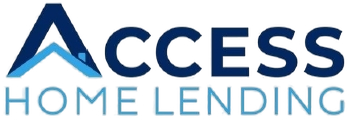Learn More About Our Loan Programs
Whether you're buying your first home, leveraging your military benefits, or accessing your home's equity in retirement, we have the right loan program for your unique situation..
FHA Loans - Your Path to Homeownership
Federal Housing Administration (FHA) loans are designed to make homeownership accessible to more Americans. These government-backed loans offer flexible qualification requirements and are particularly popular with first-time homebuyers.
How FHA Loans Work
FHA loans are insured by the Federal Housing Administration, which allows lenders to offer more favorable terms to borrowers. You'll pay a mortgage insurance premium (MIP) that protects the lender if you default, but in return, you get access to lower down payments and more flexible credit requirements.
FHA Loan Benefits
Low Down Payment: As little as 3.5% down with a credit score of 580 or higher
Flexible Credit Requirements: Credit scores as low as 580 accepted (500-579 with 10% down)
Gift Funds Allowed: Down payment and closing costs can come from family gifts
Assumable Loans: Future buyers can take over your loan terms
Competitive Rates: Often lower than conventional loan rates
FHA Loan Requirements
Primary residence only (no investment properties)
Debt-to-income ratio typically under 43%
Property must meet FHA minimum property standards
Mortgage insurance premium required
Conventional Loans - Traditional Flexibility
Conventional loans are traditional mortgages not insured by any government agency. They offer the most flexibility in terms and are ideal for borrowers with good credit and stable income.
How Conventional Loans Work
These loans follow guidelines set by Fannie Mae and Freddie Mac, government-sponsored enterprises that purchase mortgages from lenders. Without government insurance, lenders rely on your creditworthiness and may require private mortgage insurance (PMI) if you put down less than 20%.
Conventional Loan Benefits
No Upfront Insurance Premium: Unlike FHA loans, no upfront mortgage insurance fee
Removable PMI: Private mortgage insurance can be cancelled when you reach 20% equity
Higher Loan Limits: Conforming loans up to $766,550 (2024 limit), jumbo loans above that
Flexible Property Types: Primary homes, second homes, and investment properties
Various Term Options: 15-year, 20-year, 30-year, and more
Conventional Loan Requirements
Credit score typically 620 or higher
Down payment as low as 3% for qualified borrowers
Debt-to-income ratio typically under 45%
Stable employment and income history
VA Loans - Honoring Your Service
VA loans are an exclusive benefit for eligible veterans, active-duty service members, National Guard, Reserves, and surviving spouses. These loans represent our nation's commitment to those who have served.
How VA Loans Work
The Department of Veterans Affairs guarantees a portion of the loan, which allows lenders to offer exceptional terms. You'll need a Certificate of Eligibility (COE) to prove your military service, and the property must be your primary residence.
VA Loan Benefits
No Down Payment: 100% financing available for qualified borrowers
No Private Mortgage Insurance: No monthly PMI payments required
Competitive Interest Rates: Often lower than conventional loans
No Prepayment Penalties: Pay off your loan early without fees
Assumable Loans: Qualified buyers can take over your loan
Reusable Benefit: Can be used multiple times throughout your lifetime
VA Loan Eligibility
Veterans with qualifying service periods
Active-duty service members
National Guard and Reserve members with qualifying service
Surviving spouses of veterans who died in service or from service-connected disabilities
Must obtain Certificate of Eligibility (COE)
Reverse Mortgages - Financial Freedom in Retirement
A reverse mortgage is a loan available to homeowners aged 62 and older that allows them to access the equity in their home without having to make monthly mortgage payments. Instead of making payments to a lender, the lender makes payments to you.
How Reverse Mortgages Work
With a reverse mortgage, you continue to own your home and maintain the title. You can receive funds as a lump sum, monthly payments, a line of credit, or a combination of these options. The loan becomes due when you sell the home, move out permanently, or pass away.
Types of Reverse Mortgages
HECM (Home Equity Conversion Mortgage): FHA-insured, most popular option
Jumbo Reverse Mortgage: For high-value homes exceeding HECM limits
HECM for Purchase: Buy a new home using a reverse mortgage
Reverse Mortgage Benefits
No Monthly Payments: Eliminate monthly mortgage payments
Stay in Your Home: Continue living in your home as long as you wish
Flexible Access: Choose how you receive your funds
Non-Recourse Loan: You'll never owe more than your home's value
Government Insured: HECM loans are backed by FHA
Reverse Mortgage Requirements
Be at least 62 years old
Own your home outright or have a low mortgage balance
Live in the home as your primary residence
Maintain the property and pay property taxes and homeowners insurance
Complete required financial assessment and HUD-approved counseling
Important Considerations
While reverse mortgages offer many benefits, it's important to understand all aspects:
Interest accrues over time, reducing available equity
You remain responsible for property taxes, insurance, and maintenance
The loan must be repaid if you move or sell the home
May affect eligibility for some government programs
Ready to Take the Next Step?
Now that you understand our loan programs reverse , let's explore your options together. Our experts are standing by to provide personalized guidance.
